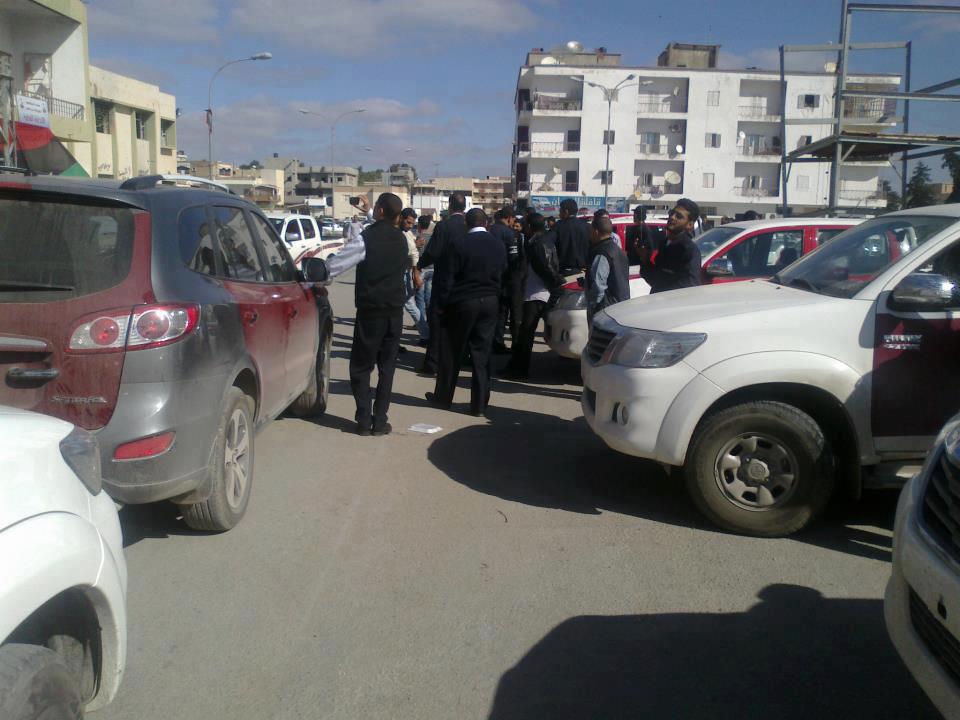
By Maha Ellawati.
Benghazi, 15 November:
Members of the Supreme Security Committee and other security personnel in Baida protested today, Thursday, at the decision by the Integrity Commission to block the appointment of Ashour Sulaiman Shuwail as interior minister. The commission announced on Tuesday that he, along with three other of Prime Minister Ali Zeidn’s cabinet nominations, did not conform to standards of patriotism and integrity.
The commission is tasked with investigating any close links that appointees to high office may have had with the Qaddafi regime and any wrongdoing committed by them. However, so far it has not given any explanation as to why it disbarred Shuwail and the three others: Ali Mohammed Muhairiq, who was nominated for the Electricity portfolio, Abdulasalm Bashir Duabi (Higher Education) and Muaz Fathi Al-Khoja (Minister for Relations with Congress).
The Baida protestors accused the commission of lack of transparency and said they would take more forceful action if it does not explain the reasons for its decision.
“We protest against the decision made by the Integrity Commission to exclude, for unfounded and unacceptable reasons, the revolutionary Dr Ashour Ashour Shawyil, nominated for the Interior Ministry post”, said Colonel Idris Khalifa Aljali, commander of the support battalion in Baida. “Should the Integrity Commission not disclose the real reasons behind Dr Shwayil’s exclusion, we will take further action.”
The protestors claimed that the 58-year old former senior army officer, who is from Baida, had fully supported of the revolution from the beginning and was being targeted because of it by “traitors”. His role in the revolution was well known in the east of the country, they said, and he had played a major role in the defence of Benghazi and fighting on the front.
The said they they knew best who was the real revolutionary and who the traitor.
In August, the commission disbarred Beida’s independent congressman, Abd Rabbah Mikael. The disbarment was upheld by the courts at the beginning of last month.
The Beida protest contrasts markedly with those in Tripoli immediately after the prime minister’s cabinet, including Shwayil, was approved by Congress on 31 October. Demonstrators turned up outside the Congress building to demand that he and five other nominees be dropped.
It also highlights the challenges facing the prime minister, with each town and region in the country insisting on representation in the cabinet.
However, there are growing calls for the commission to explain its decisions.
Yesterday, Wednesday, the disbarred nominee for the electricity ministry, Ali Mohammed Muhairiq expressed shock at the decision to disbar him. He said that had not held any positions in the Qaddafi regime and that he had been out of the country between 1981 and the revolution. He said he had joined the Libyan opposition abroad during that period.
“The decision has indeed come as a surprise to me and to all those who shared with me this critical stage of Libya’s history”, he said. He indicated he intended to challenge the ruling.
“While amazed at the commission’s decision, I am certain, God willing, that the Libyan judiciary system will nullify such a decision “.
The courts have already overturned a number of commission disbarments.
With input by Hadi Fornaji
[/restrict]








